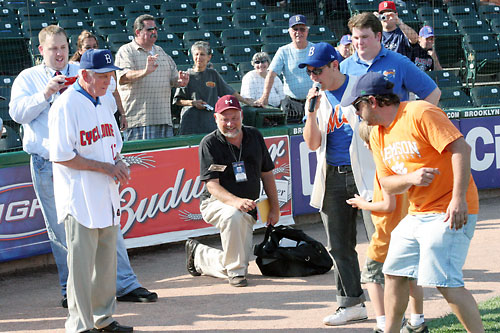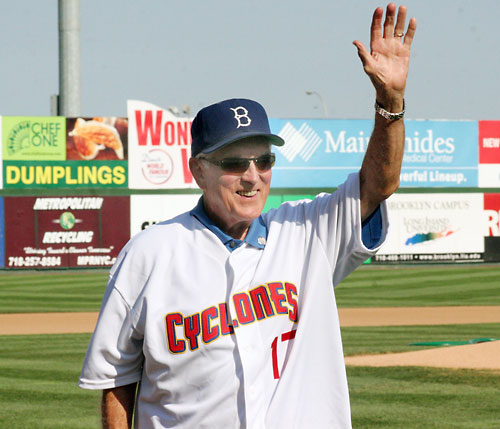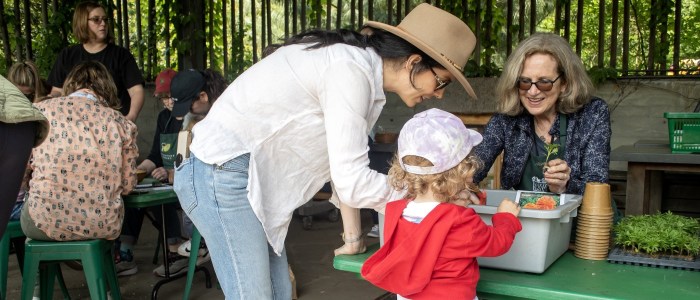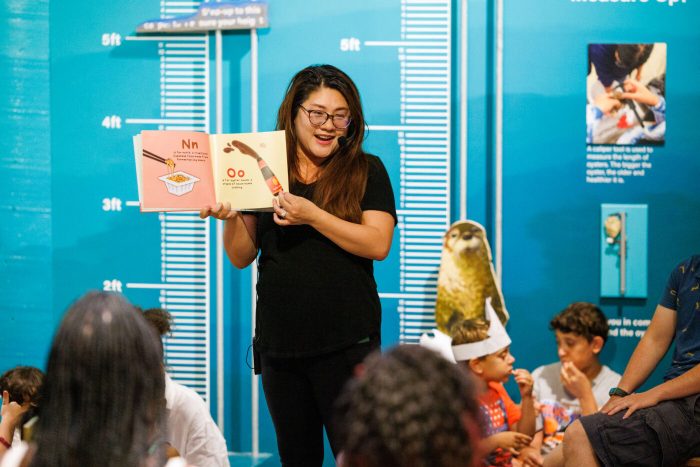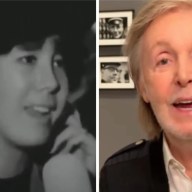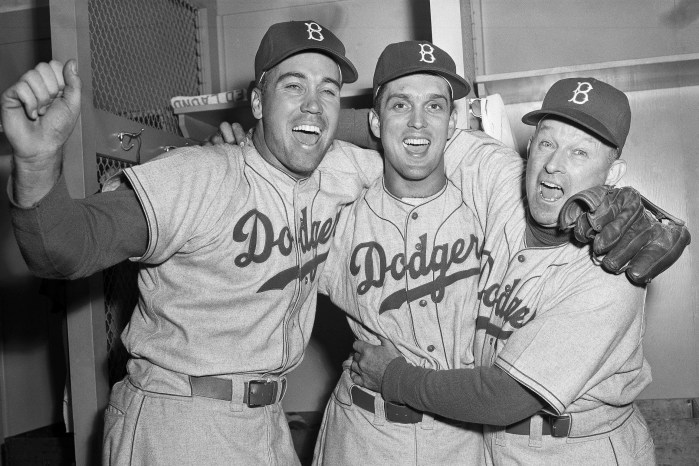Carl Erskine won again on Sunday, which is no surprise to anyone familiar with Brooklyn Dodger baseball.
No, Erskine, who won 122 games in the big leagues (including two no-hitters) and lost only 78 (a winning percentage of .610), did not win another baseball game, but he won everything else in sight and left the Keyspan Park faithful all better for the experience.
The Dodger right-hander was in Coney Island for Carl Erskine Bobblehead Night, and while Erskine’s bouncing giveaway likeness was a treat, the real man was even better. Erskine began his stint by greeting invited well–wishers in the Keyspan Park Gallery, then addressed the packed Keyspan crowd, noting the historical significance of Brooklyn’s acceptance of Jackie Robinson.
Then, the hurler recalled Brooklyn’s only World Series champions, the 1955 team — on which he starred.
“There are only nine players left from the 40-man roster,” he noted.
Next on the agenda was a special baseball card flipping match pitting Erskine against Robert Kersten of Long Island, who had won a qualifying heat earlier that afternoon.
The Dodger pitcher put his right arm to good use, and won the first two flips of the best-of-three contest to immediately clinch the win.
Yet this 81-year-old Dodger didn’t come back to Brooklyn to rest, so his next task was to perform the National Anthem — on his harmonica.
Time for a rest? Let’s remember, Erskine comes from an era of complete games, so the Hoosier’s next job was to throw out the first pitch — a strike.
Erskine was next honored by having his name and his number 17 placed on a permanent banner on Keyspan’s upper deck behind home plate.
Then the Dodger legend went back to the Gallery for a press conference prior to his spending several hours greeting fans on the concourse and signing hundreds of copies of his book, “Tales From the Dodger Dugout.”
In the Gallery, he discussed coming to Brooklyn as a 21-year-old rookie in 1948: “I didn’t have any money,” said Erskine. “So I stayed at the Hanson Street YMCA.”
When his career was established, Erskine lived each year with his family in Bay Ridge. But initially, he thought the adjustment to living in Brooklyn would be immense.
“I was a skinny kid in Indiana [and came] to the big city only to find out that Bay Ridge was just like my hometown. I knew the baker, the butcher, the barber, and the deli guy down the street. You’d pitch a good game in a big game at Ebbets Field and they’d have a street party, the balloons in the trees. … Brooklyn was my second home.”
Later, Erskine discussed what he believes is the most important legacy of the Dodgers.
“History is going to talk about baseball in Brooklyn [which] accepted a black player and broke a terrible, traditional bond of separation. Brooklyn, an ethnically mixed community, was the ideal stage. … The Brooklyn people accepted Jackie immediately.
“Oh, he could play, no question, and you always like to have a good player on your side, but they accepted him for who he was, not what he was, and that taught the whole nation a lesson…because America became more inclusive, more accepting, and all that started in 1947 when they cheered Jackie as a first baseman for the first time.
“So this is a special place.”
Channeling the Bard
Each week, the Bard of Brooklyn Baseball summons the spirit of his Elizabethan ancestor. This week’s edition is entitled, “Oisk”:
When Oisk was young, he threw for Brooklyn herds.
A fastball, curve and change, each one in place.
His arm has slowed — now what he hurls are words.
Now pitching sounds, he varies tone and pace.
He’s still the master, gather round, come near.
He’s throwing wisdom, listen hard — and hear.
